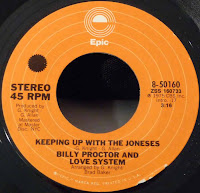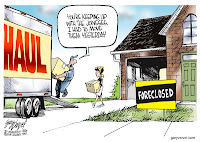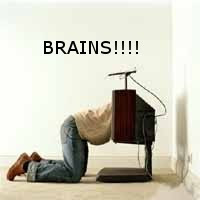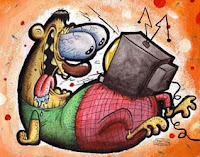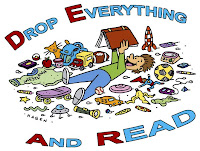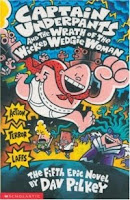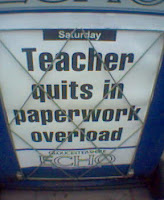


Goldring and Berends (2009) state that standardized tests and formative assessments should be teamed up to provide a clear idea how the child is progressing academically. In a perfect world. I would agree, but in a NCLB world, I have to smother a snide snicker. Personally, I don’t see a great deal of this happening.
I have the pleasure of going to many different schools to supervise student teachers, and I have to say, I am so impressed with what I am seeing. My student teachers, guided by excellent cooperating educators, are coming up with wonderfully creative formative assessments that give the students hands-on, authentic learning. I leave the observation with goose bumps because the learning is so infectious and fun. I learn new stuff every time I visit.
Formative assessments guild much of their teaching and it’s obvious that the children are learning. It gives me hope for the future of education. Then reality smacks me upside my head. According to the big picture of modern education, all of this wonderful teaching is at the mercy of that end of the year monster…. The High Stakes Standardized Assessment. It’s a shame. You can produce awesome formative assessments and get kids excited about learning, but sometimes… it just doesn’t help.
True story: One of my student teachers was talking with a boy who was working on some math problems. This boy was very intelligent, but had some emotional issues. He told this teacher “. . . even if I do good on all my daily work it doesn’t mean anything because I’ll only go on to the next grade if I pass the CRCT.” He’s right! My question is why does an elementary child have to worry about this in the first place? Young children should not suffer anxiety, depression, and health issues because of one lousy test.
How can this be improved?
Allow teachers to use formative assessments that have real meaning.
Use authentic assessment and portfolios to document learning.
Use standardized assessments as a part of the puzzle, and not the determining factor.
What challenges do we face?
No Child Left Behind, politicians, the media, members of the public who have been conditioned to think that a school grade, and a child passing a high-stakes assessment equates to real learning. People keeping silent does not help much either. I realize people fear for their jobs and stay quiet, and I know there are millions of educators and administrators who think our current form of test manic education is the wrong thing to do. If you can't speak out loud, start an anonymous blog… be loud and heard. If enough folks do this, attention will be paid.
Reference
Goldring, E. and Berends, M. (2009). Leading with data: Pathways to improve your school. Thousand Oaks: Corwin Press.
Attachments:
Post Edit Print
Close this window
